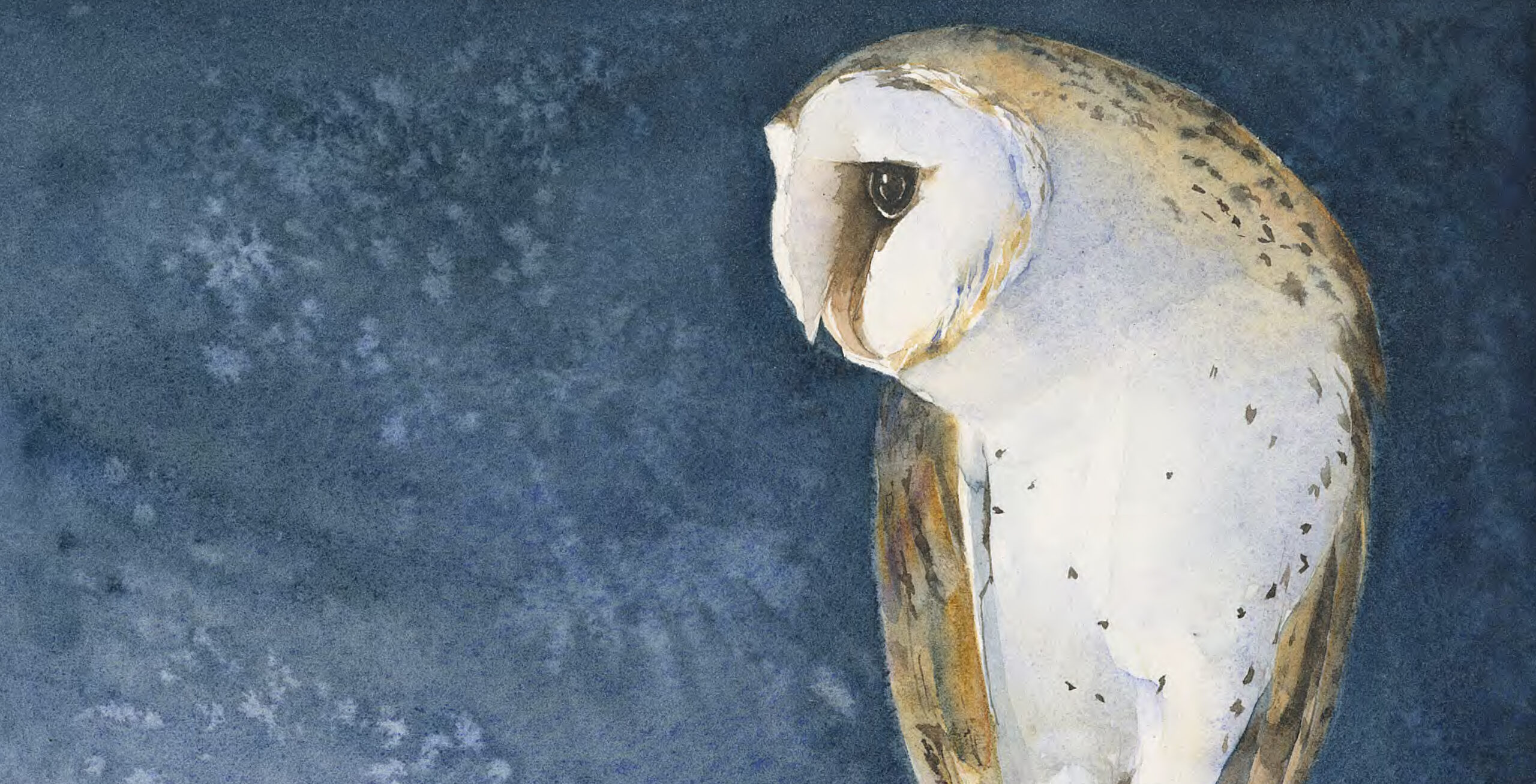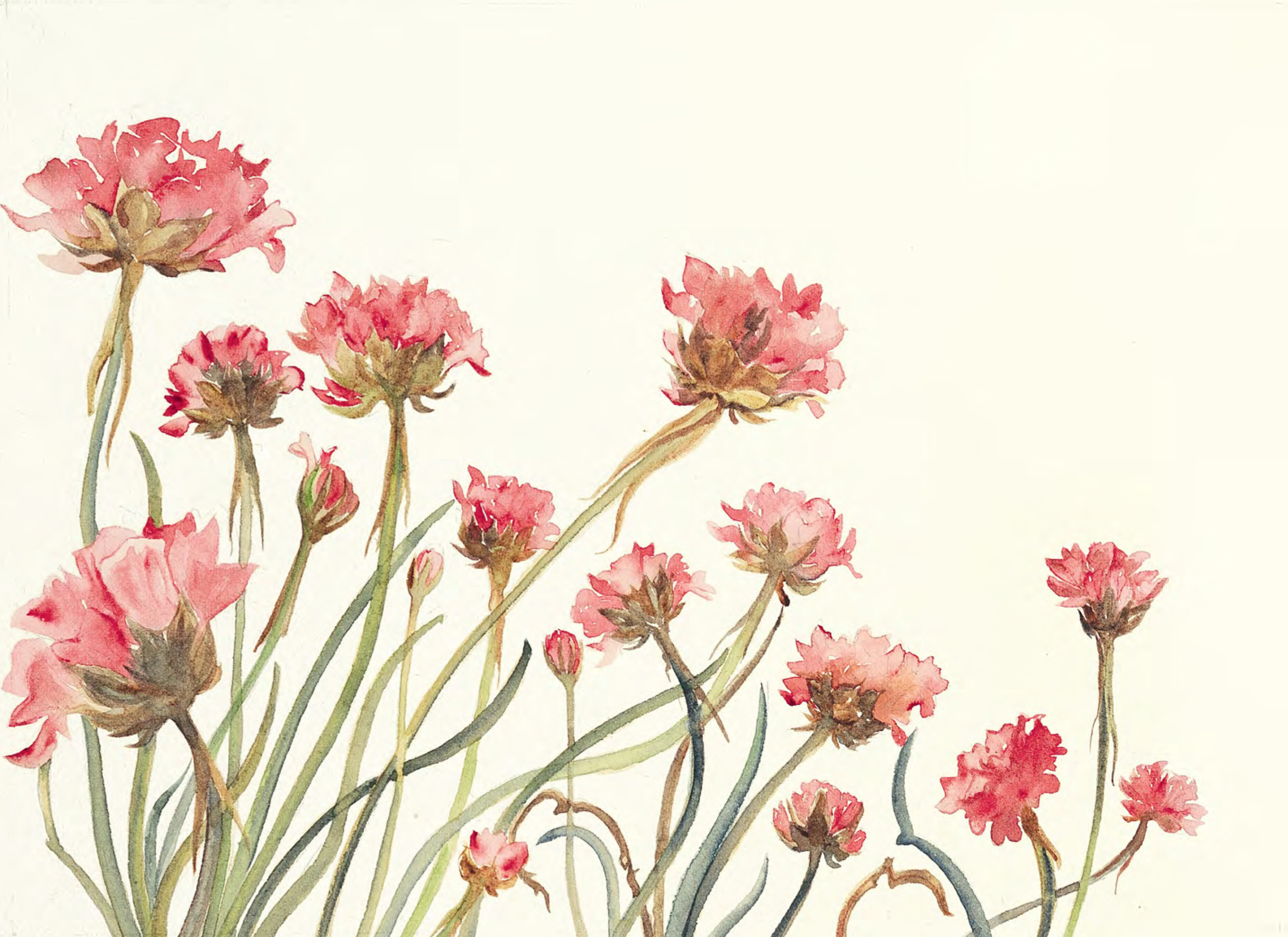A Book Review for The Lost Words and The Lost Spells
As a writer who is also a mother with young children, the execution of my roles overlaps more often than not. As I was making notes for this review, my newly 6-year-old son sat down beside me and picked up The Lost Words: A Book of Spells (published October 2017 by Hamish Hamilton).
As he began to turn the pages, he asked, “What are all these letters, Mom?” I leaned over, and we noticed together that amongst the gold letters was a sprinkling of green letters. He began to name the green letters, then turned the page to read the word he had just spelled. “Acorn! Mom, those green letters make the word acorn!” Turning the page again, we noticed the word spelled again, this time as an acrostic poem:
As flake is to blizzard, as
Curve is to sphere, as knot is to net, as
One is to many, as coin is to money, as bird
is to flock, as
Rock is to mountain, as drop is to fountain, as
spring is to river, as glint is to glitter, as
Near is to far, as wind is to weather, as
feather is to flight, as light is to star, as
kindness is to good, so acorn is to wood.
This poem—and the rest of the poetry in The Lost Words—is full of sound play. The assonance and consonance creates internal rhythm and rhyme that is playful, but not silly. The use of analogy here works as a prism, refracting meaning throughout the poem, creating a cumulative metaphor which rises to the crescendo, “so acorn is to wood.” And so, the acorn is celebrated, illuminated, and reclaimed.
The inception of the oversized book The Lost Words occurred more than a decade ago. In 2007 the Oxford Junior Dictionary (OJD) decided to replace lesser-used words from the natural world—like acorn and dandelion—with technological words used with greater frequency, like attachment and bandwidth. And while lawn tenders might like to see dandelions become extinct, that ignores the reality that they exist, that they are part of the world we inhabit.
Jackie Morris, an artist and illustrator, began to paint icon-like images of some of the lost words as a response, with the idea of pairing them with dictionary definitions to make a book. She asked Robert MacFarlane, a fellow of Emmanuel College, Cambridge, to write the introduction, but when he got involved, the idea of the book grew and changed, and they began a collaboration.
MacFarlane says, “Forgetting is an easy way to lose things—as each generation becomes more at ease with less nature, we forget what it is that we’ve lost. Keeping everyday nature alive in the words and stories of children in particular—who are the ones who will grow up and decide what to save and what to lose—seems to me vital.”[1] Valuing words, and the things they represent, is a worthy cause. It is conservative in the best sense, preserving what is good from being lost.
My son continued to read on his own, asking for help sounding out words, turning the pages, naming things in the illustrations he had seen in other places in the book. He kept returning to the pages with scattered letters, and I realized that I was watching my kindergartener learn to spell; in the most clever way, this book was both building knowledge and inviting my son and me to engage aspects of the natural world in a way we hadn’t before.
“But wait! This calls itself a book of spells.” I can hear the protest echoing in the back of my mind. “The book of Deuteronomy is clear about magic, spells, and those who work them. Is this opening the door into that world?” No. Rather, this is a book of masterful wordplay, calling these words back into use. There are many ways the word magic is used in ordinary life. Word play is inherent to the craft of poetry, and the idea that this is a spell book riffs upon the word in all of the best ways. Malcom Guite’s thoughts about how words and spells are intertwined speak well to this: “Every act of writing evokes the hidden correspondences between Word and World: a magic witnessed by the way a word such as “spell” means both to spell a word and to make magic, the way “chant” is embedded in “enchantment”, the way even the dry word ”grammar” turns out to be cognate with “glamour” in its oldest magical sense.”[2]
The intention of The Lost Words is to awaken children and their grown-ups to the wonders of the natural world that are in danger of being lost.
The Old English verb that became “awaken” means “to spring into being, arise, originate” or “to rouse from sleep, to stir up, to rouse to activity.” The cover boasts goldfinches, and a dandelion clock (or, puffball, on the American side of the pond). Cheekily enough, a collective noun for a group of goldfinches is a charm. This is a book of magic in the best sense of the word, dwelling with wonder on these words that the OJD marginalized, awakening both wonder and a reminder of our Edenic mandate to take care of this good world.
When we lose our connection to the natural world, we lose a vital piece of ourselves, for we lose our connection to what is real, and the opening of a window to what is more real than we can see. As Oswald Chambers says, “The people of God in Isaiah’s day had starved their imagination by looking on the face of idols, and Isaiah made them look up at the heavens, that is, he made them begin to use their imagination aright. Nature to a saint is sacramental. If we are children of God, we have a tremendous treasure in Nature. In every wind that blows, in every night and day of the year, in every sign of the sky, in every blossoming and in every withering of the earth, there is a real coming of God to us if we will simply use our starved imagination to realize it.”[3] Romans tells us that all creation groans, and not only creation, but “we ourselves, who have the firstfruits of the Spirit, groan inwardly as we wait eagerly for adoption as sons, the redemption of our bodies.” (Romans 8:22-23 ESV) Part of being rightly related to God is being rightly related to my role as a steward of creation, and to live in the ache of things that have not yet been put right.
The Lost Spells (published October 2020 by Hamish Hamilton) is the (much smaller) little sister of The Lost Words. The glossary at the end invites the reader to take the book to “coast and forest, park and garden; use it there to look, to name, to see.” The Lost Spells is not just a gorgeous book, it is thoughtful and intentional. There are many delightful moments: the poetry beckons and rants, the artwork surprises and shimmers, and page by page the reader is invited to see both the natural world and our worlds differently. The first time I read this book, I turned the page to illustrations of ruffled pink flowers, immediately followed by the poem, “Thrift,”:
Thrift thrives where most life fails, falls
is cast adrift.
High on mountain ridges, sea-cliff ledges,
island edges, Thrift resists, survives—
flower of brinks and rifts, veteran of sheer
drops and near misses, queen of in extremis,
planting pink-as-candy lipstick kisses on
basalt columns, granite outcrops.
Immediately this poem described not just a plant with which I was unfamiliar, but became a metaphor for a friend who has lived for the past year with multiple forms of cancer in her body. She is choosing to bloom fiercely and honestly, to cling to the cliff of uncertainty, to bring beauty in the midst of her grief and pain. The poem ends:
Thrift blooms on spot-heap and tailing,
for Thrift knows hardship is a limit not
a failing; Thrift persists despite all odds,
and Thrift’s gift is—Thrift’s grace is—
to give a glimpse of hope in the tightest
of spots, the toughest of places.
This picture of hope and beauty in the middle of pain and limitation continues to lift my gaze.
However, as The Lost Spells sharpens our vision of the natural world, it blurs an important distinction in the spiritual world. In the introduction it says, “Here you will find incantations and summoning charms, spells that protect and spells that protest, tongue-twisters, blessings, lullabies and psalms.” In this book we find language of the occult—incantations, charms, spells—used in the same place as blessings and psalms. Is that a concern here?
I believe that it is. The impetus for both of these books is to fight for the importance of words, and the things they represent. It is natural for poets to subvert language, but through Lost Words, the use of language indicates the author does not take supernatural reality seriously, or that he conflates the natural and the supernatural, which moves this book onto dangerous ground.
As someone who follows Christ and believes in sacramental reality, I am not only called to steward the natural world, but to continually engage spiritual reality as well. This reality includes light and darkness, which are not the same, and I must practice discernment when that distinction becomes blurred, when things move from being either hot or cold, to being lukewarm.
However, discernment is very different from reacting in fear, as so many are wont to do. Malcom Guite, again, offers a reminder of where all words have their end: “But there is, as C.S. Lewis would say, a deeper magic still. If all language is a kind of spell, it is a “good spell” (or “gospel” as we later shortened that term). For our faith points to a single source, in the Word, the Logos of God, for both the mystery of language and the mystery of being itself. Christ is the Word within all words, the Word behind all worlds.”[4]
As I live simultaneously in a reality that I can see and one that I cannot see, I seek to honor the Word who spoke all reality into being as I use words with intention, and encourage others to do the same.
I commend The Lost Words to you without reservation, and with great enthusiasm.
I commend The Lost Spells to you with an invitation to read with discernment, and as an exercise in consciously engaging your conscience, for as Lancia Smith reminded me recently, “I must answer to my conscience, because I will answer for my conscience.” This is a reminder that I must exercise the muscle of discernment no matter what I am reading, and if my conscience cautions me, I must give heed.
In The Weight of Glory, C.S. Lewis, paints a word picture of the longing awakened by good books and music. Then, he says, “Do you think I am trying to weave a spell? Perhaps I am; but remember your fairy tales. Spells are used for breaking enchantments as well as for inducing them. And you and I have need of the strongest spell that can be found to wake us from the evil enchantment of worldliness which has been laid upon us….”[5] The Lost Words and the Lost Spells awaken the reader to deeper delight and wonder, and to a fuller engagement with the good world we have been given. They can serve as spells that help to break our stupor and call us toward a fuller understanding of the good spell—the magic that only redemption can work.
[1]Walsh, Louise. “The Lost Words.” Broken Nature: Design Takes on Human Survival – XXII Triennale Di Milano, Broken Nature: Design Takes on Human Survival, http://www.brokennature.org/the-lost-words/. Accessed 17 February 2021.
[2] Guite, Malcom. “Malcolm Guite: Poet’s Corner.” The Church Times – News, Comment, Features, Book Reviews and More, 2021, https://www.churchtimes.co.uk/articles/2019/16-august/comment/columnists/malcolm-guite-poet-s-corner. Accessed 17 February 2021.
[3] Chambers, Oswald. My Utmost for His Highest – Deluxe (DELUXE CHRISTIAN CLASSICS). Barbour Publishing, Inc., 2000.
[4] Guite, Malcom. “Malcolm Guite: Poet’s Corner.” The Church Times – News, Comment, Features, Book Reviews and More, 2021, https://www.churchtimes.co.uk/articles/2019/16-august/comment/columnists/malcolm-guite-poet-s-corner.
[5] Lewis, C. S. Weight of Glory. Zondervan, 2001, p. 31.
The featured images, “Barn Owl” and “Thrift“, are (c) by Jackie Morris and used with generous permission for Cultivating.
And for a delightful pairing with this review, enjoy Malcolm Guite discussing Lost Words in his popular sessions on Youtube aptly titled “A Spell in the Library”.
Amy Malskeit is a lover of words and stories and people. She holds an undergraduate degree in English and Spanish, a secondary English teaching credential, and an MA in creative writing with an emphasis in poetry from Lancaster University in Northwest England. Her years teaching middle and high school gave her a love for middle grade and young adult literature, and the awkward awesome that being a young adult means. She is a mother of two who plants her garden and makes her home in the foothills southwest of Denver with her best friend, Kevin. She loves the water, and feels most at home when she is near the Pacific Ocean. She reads broadly, and is passionate about exploring big questions and small moments through her poetry, essays, and stories.
Leave a Reply
A Field Guide to Cultivating ~ Essentials to Cultivating a Whole Life, Rooted in Christ, and Flourishing in Fellowship
Enjoy our gift to you as our Welcome to Cultivating! Discover the purpose of The Cultivating Project, and how you might find a "What, you too?" experience here with this fellowship of makers!



Thank you, Amy, for this thoughtful and honest review. I appreciate the way you bring discernment into the conversation while maintaining grace. This is an example of Jesus’s words in Matthew 10:16, “Behold, I send you out as sheep in the midst of wolves; so be shrewd as serpents and innocent as doves.” Thank you for your example.
@Athena, I so appreciate your reflection. Thank you.